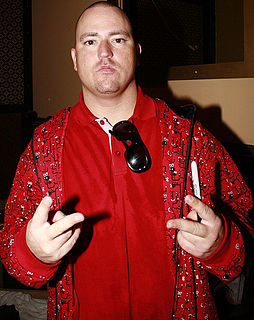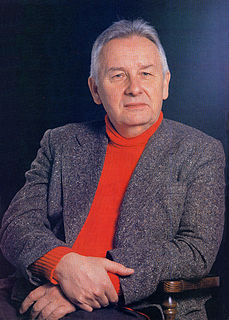A Quote by Noam Chomsky
If a person chooses not to be a writer, or speaker, then (by definition) the person is choosing not to be engaged in an effort,"to bring the truth about matters of human significance to an audience that can do something about them," apart, perhaps, from some circle of immediate associates.
Related Quotes
So from then on, he looked at all his choices and said, What would a good person do, and then did it. But he has now learned something very important about human nature. If you spend your whole life pretending to be good, then you are indistinguishable from a good person. Relentless hypocrisy eventually becomes the truth.
An audience will let you know if a song communicates. If you see them kind of falling asleep during the song, or if they clap at the end of a song, then they're telling you something about the song. But you can have a good song that doesn't communicate. Perhaps that isn't a song that you can sing to people; perhaps that's a song that you sing to yourself. And some songs are maybe for a small audience, and some songs are for a wide audience. But the audience will let you know pretty quickly.
Some people spend their entire lives thinking about one particular famous person. They pick one person who's famous, and they dwell on him or her. They devote almost their entire consciousness to thinking about this person they've never even met, or maybe met once. If you ask any famous person about the kind of mail they get, you'll find that almost every one of them has at least one person who's obsessed with them and writes constantly. It feels so strange to think that someone is spending their whole time thinking about you.
In the U.K. - correct me if I'm wrong - there is a legal definition of 'not being in possession of yourself' aka 'not being a person.' That's the fun thing: someone such as a lawyer needs to define, using some empirical signal, something supposedly transcendental like 'person,' something lawyers argue and argue about regarding, say, chimps in zoos.
One of the things about crowd work that's so exciting is when you discover a character in the audience who's interesting or funny, who you can vibe off of. If someone's got a weird job that you can make reference to throughout, or you can bring that person onstage - humiliate them, or celebrate them! You can put people in conversation with one another. The best is when something that they're doing can reflect back on something that you're doing.
I do not choose my listeners. What I mean is, I never write for my listeners. I think about my audience, but I am not writing for them. I have something to tell them, but the audience must also put a certain effort into it. But I never wrote for an audience and never will write for one, because you have to give the listener something and he has to make an effort in order to understand certain things.
I think of the medium as a people-to-people medium, not cameraman-to-people, not direction-to-people, not writers-to-people, but people-to-peopleYou can only involve an audience with people. You can't involve them with gimmicks, with sunsets, with hand-held cameras, zoom shots, or anything else. They couldn't care less about those things. But you give them something to worry about, some person they can worry about, and care about, and you've got them, you've got them involved.





































